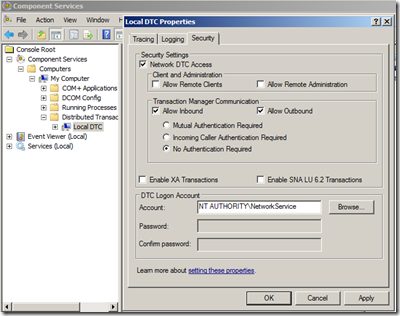Problema
Al ejecutar la herramienta UDDI Publisher tool (%ESB Install Folder%\Bin\Microsoft.Practices.ESB.UDDIPublisher.exe), para poder crear la entradas UDDI del ESB Toolkit se genera el siguiente error: .
Solución
Por defecto cuando se instala UDDI Services es configurado para requerir SSL, mientras que la herramienta UDDI Publisher tool es configurado para usar UDDI sin SSL.
Intente los siguientes pasos:
a. En el menu Start, clic All Programs, clic Microsoft UDDI Services, y luego en UDDI Services Management Console.
b. En esta consola, clic derecho en el nodo UDDI, y luego Properties.
c. En la etiqueta de Security, deschequear Require SSL for publication to this site.
d. Correr de nuevo UDDI Publisher tool del ESB Toolkit.
Y sabor !




